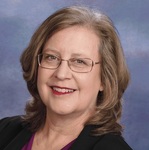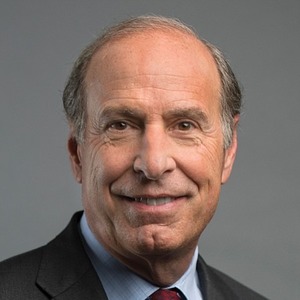Leading Clinical, Technological, and Social Innovation to Address Health Care’s Most Pressing Needs
View from the C-Suite: Rod Hochman, MD, President and CEO, Providence
// By Sheryl S. Jackson //
 In a wide-ranging keynote interview, one of health care’s most innovative leaders discusses the industry’s biggest challenges and greatest opportunities. Here are some of the highlights.
In a wide-ranging keynote interview, one of health care’s most innovative leaders discusses the industry’s biggest challenges and greatest opportunities. Here are some of the highlights.
This month, we hear from a health system CEO who kicked off the Becker’s Healthcare 11th Annual Meeting Virtual Experience in May with a discussion of issues of greatest concern to health care leaders. The conversation between Rod Hochman, MD, president and CEO of Providence and Rhoda Weiss, Ph.D., conference co-chair and president of Rhoda Weiss Consulting Group, provided insight into strategies employed by Hochman to guide his organization through the issues faced in 2020 and to prepare for future challenges.

Rod Hochman, MD, president and CEO, Providence
As an immunologist, Hochman offers insight into the clinically related issues brought to the forefront in the past year, but he also has a reputation as a forward-thinking strategist and innovator — two qualities that have led to decisions that provide a framework for the health care of tomorrow.
Five years ago, Rod Hochman, MD, president and CEO of Providence, was talking about two viruses that should cause concern for health care leaders — an RNA virus and a cyber virus.
While the scope and speed of the worldwide COVID-19 outbreak was surprising, the event was not entirely unpredictable, says Hochman. “I think there were a number of us out there that had this pending feeling about it; those of us who’ve looked at SARS and looked at the biology knew it was not a question of whether it would happen but when,” he says. “We’ve been shielded from pandemic in the United States, but there have been a lot of epidemics around the world, such as Ebola in Africa. It’s a natural consequence of life in a lot of the parts of the world.”
Although the current epidemic crisis appears to be under control, Hochman identifies several other issues that will continue to challenge health care leaders in the near future.
Cyber Threats
“This is an area where collaboration has been really important among health care entities to compare and understand what we’re dealing with, but I think we’re all a little overwhelmed with the magnitude of this issue,” says Hochman.
“Although we thought we would have had a respite from cyberactivity in 2020, it actually went up to a much greater extent.”
One of the first steps his organization took was to look outside health care to find experts who really understand the issue, he says. “Our chief information officer came from Microsoft and a lot of our safety and security people come from places like the FBI and other places that have been dealing with this issue,” he explains. “Although we thought we would have had a respite from cyberactivity in 2020, it actually went up to a much greater extent.” He predicts that the “lingering effects are going to extend for the next five or 10 years.”
Lessons Learned During COVID
“In a perfect world, we want universal access for 330 million Americans, and we want it to be affordable,” says Hochman. “I think generally we’re getting a growing consensus, but the question is: How do you get there?”
Hochman points to discovering during COVID that the public health system is on shaky ground. “What we learned is that Americans need great preventive primary care that they have access to,” he says. A capitated, value-based primary care system that pays primary care doctors to care for a patient’s overall health would not only provide better care for patients, but also attract more doctors to primary care, he says.
“In a perfect world, we want universal access for 330 million Americans, and we want it to be affordable.”
“As a primary care doctor, I’m going to know what I’m getting paid on day one, and I can just do what I always want to do, which is really take care of my patients in the best way,” says Hochman. Once patients receive the primary care and preventive services, including mental health care, they are better prepared to handle other health issues, he explains. “And primary care is actually pretty cheap, and it’s something that I hope that we can get commercial insurers and the government to wrap their arms around,” he says. “It is not the be all and end all, but it will make a difference.”
Health Equity
“I look at health equity in the same way we looked at the quality and safety problem a decade ago,” says Hochman. “A lot of us in health care know the data, it’s staring us right in the face as we look at the data discrepancies around maternal and fetal deaths and people of color, or disparities in breast cancer — I could go on and on and on.”
Recognizing that not too long ago, hospitals were segregated in both staff, doctors, and patients and admitting that health care’s history is not pristine is a good step, says Hochman. “But now, what do we do as we move forward?” he asks.
“The smartest thing I did is I put Rhonda M. Medows, M.D., who’s my head of population health, in charge of health equity for Providence and she wants to create action.” COVID served as the first opportunity to address health inequity with clinics set up in underserved communities to provide care and education, he says. “These clinics were our first step in addressing health equity, because COVID was right in front of us, then we’ll move to the other issues.”
Discovery Through Data Collaboration
“Data is the secret sauce to so many problems, and curing and protecting people, but the problem that we’ve had is that data has always been just in small packets,” says Hochman. He compares health care’s wide expanse of available data to the Hubble telescope that has collected data on previously unknown galaxies and stars.
Saying that a wealth of data allows health care professionals to see patterns and trends that could not be discovered in silos, Hochman explains the creation of Truveta, a company currently comprising 14 health care providers, including his organization. The providers share de-identified data to build a statistically significant data platform for studying U.S. health to support researchers, clinicians, and patients as they seek cures or make decisions.
“I have a lot of confidence in my colleagues in health care with systems like mine, their doctors, their nurses, and their leadership,” says Hochman. Gathering data into one space is not enough, though, he points out. “You have to have the technical expertise to understand how to use the data and how to use the tools, and Truveta is the technical organization that can take different databases and put everything together,” he says.
The founding organizations of Truveta hired some of the best and brightest from top technology companies, including CEO Terry Myerson, a 21-year veteran and former executive vice president of Microsoft.
Truveta was founded earlier this year. In this video, the founders share their vision for the new company.
Hochman’s questions for Myerson included: How do we keep data secure? How do we put all these different databases together into meaningful information to do really good for our patients? “He told me that he and his team know how to do it, but his real worry is having 14 guys and gals as his boss, so I told him I’d take care of it,” Hochman laughs. “I have to say, my fellow colleagues in health care have been just wonderful to work with because we have a common purpose,” he says. “I’m really, really excited about what Truveta can mean for the future of health care.”
A “Values-Based Organization”
Hochman wrapped up his comments by articulating Providence’s stand on these key social and environmental issues:
Immigration – “We stand for treating immigrants with dignity and respect. This is a country that was built on immigrants, and that’s where the success of the United States has been.”
Environment – “We consider the environment incredibly important. We’ve made a commitment by 2030 to be carbon negative as a health system.”
Gun Violence – “We don’t take a political viewpoint. We take a social viewpoint and a clinical viewpoint because when someone gets shot, they’re coming to one of us in our places.”
Commitment to the Poor and Vulnerable – “We are not going to turn people away. We are going to keep our doors open. And we’re going to embrace that, regardless of some of the consequences on our bottom line.”
Sheryl S. Jackson is a writer and editor specializing in marketing, leadership, and management topics for the health care, education, construction, and supply chain industries. You can reach her at sherylsjackson@bellsouth.net.
